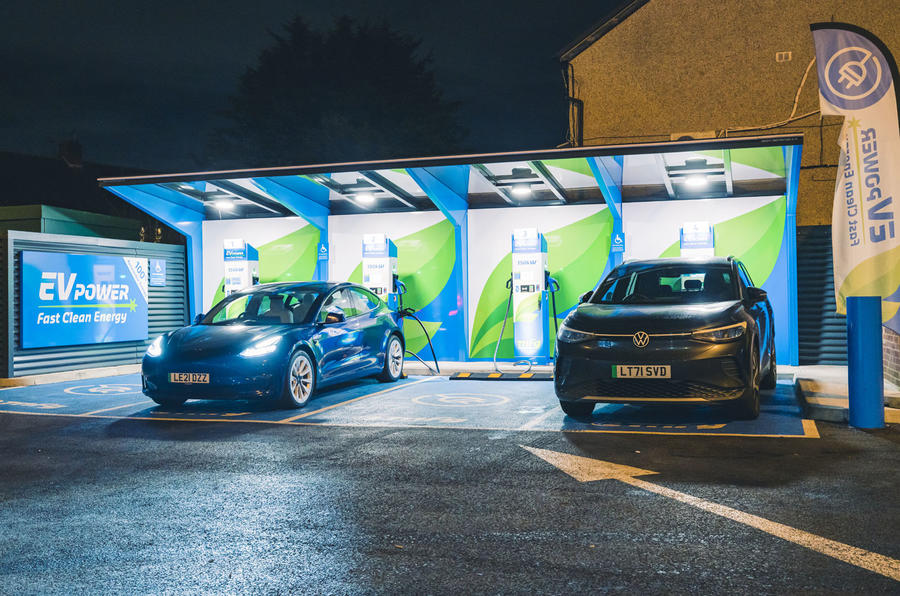Electric vehicles will be charged vehicle excise duty (VED) from April 2025, chancellor Jeremy Hunt has announced.
Reading the Autumn Statement in the House of Commons, Hunt said the move will make the motoring tax system "fairer".
A social media post from the Treasury added that the change will ensure "all motorists begin to pay a fair share" and that government support for the charging infrastructure would continue.
Electric vehicle owners are currently exempt from paying the standard VED rate of £165 per year, but those first registered between 1 April 2017 and 31 March 2025 will require owners to pay the standard rate.
The exemption from the expensive car supplement – which charges owners of cars costing more than £40,000 an additional £355 per year for five years – also ends on 1 April 2025.
Zero- and low-emission vehicles registered between 1 March 2001 and 30 March 2017, and which are currently in tax band A, will move to band B (currently £20 per year).
Benefit-in-kind tax on electric company cars will increase to 3% in April 2025, rising 1% each consecutive year, to 5% in 2027/28.
Mike Hawes, chief executive of the Society of Motor Manufacturers and Traders, said: "We recognise that all vehicle owners should pay their fair share of tax, however, the measures announced today mean electric car and van buyers – and current owners - will face a significant uplift in VED.
"The sting in the tail is the VED supplement which will unduly penalise these new, more expensive vehicle technologies.
"The introduction of taxes should support road transport decarbonisation, and the delivery of net zero, rather than threaten both the new and second-hand EV markets.
“With a ZEV mandate on the way for car and van manufacturers, we need a framework that encourages consumers and businesses to buy electric vehicles.
"We look forward to working with government on how to transition the market and ensure the tax framework on road users supports this objective.”
The RAC's head of roads policy, Nicholas Lyes, commented: "After many years of paying no car tax at all, it’s probably fair the government gets owners of electric vehicles to start contributing to the upkeep of major roads from 2025.








Join the debate
Add your comment
I can see it now:
"I was going to buy an EV car, but if it's going to cost me £165 per year extra, I'm buying a petrol of diesel car instead!"
'So you will still pay vehicle exise tax AND fuel tax?'
"DOH!"
The expensive car threshold should have been raised, especially since car makers have grown their prices substantially above inflation in the last 10 years.
As for BIK on EVs that's been long overdue, my last 'company' vehicle 10 years ago had a low BIK but nowhere, but the electric allowance has essentially given those whose car allowances afford them an iPace or Tesla (I.e well into the 95th+ decile salary range) a free car for the last few years.
Of course the "it'll impact sales of new EVs" is a complete red herring peddled by the same professional whiners that have to say something negative about anything, really, otherwise their brand receives zero recognition here.
If someone is in the market to buy a new car they'll buy a new car and if they are coming from a VED levied ICE car to a BEV they won't notice any difference. If the thought of not paying any VED is their sole motivation for changing well the. I think they have bigger problems in life.
Meanwhile the realisation of the 23% rise in fuel duty is gaining ground elsewhere but Autocar still silent on it. Maybe the RAC's head of whining hasn't had anything to say yet.